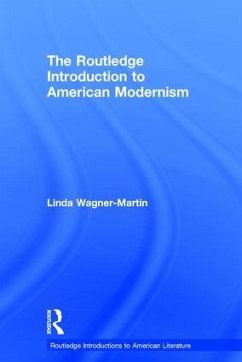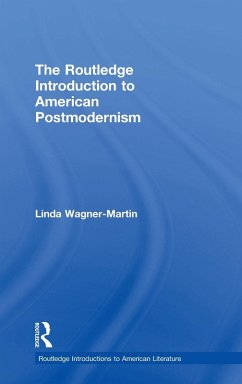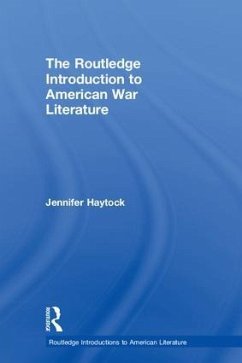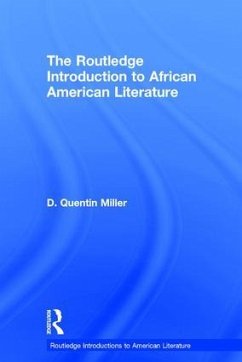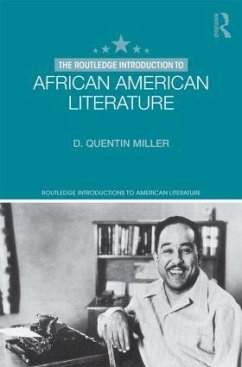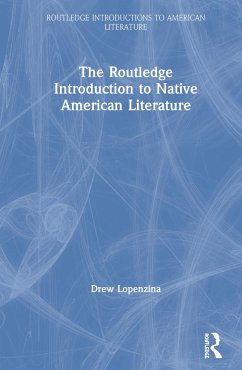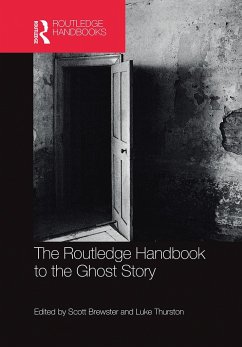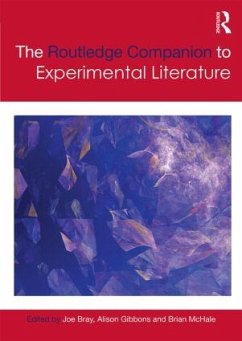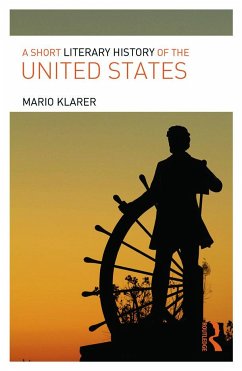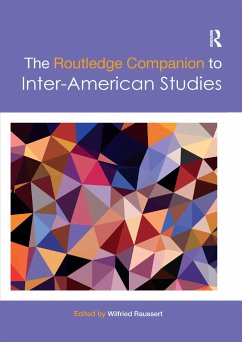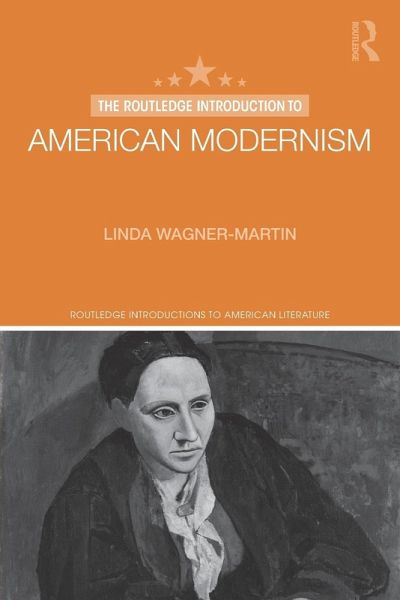
The Routledge Introduction to American Modernism
Versandkostenfrei!
Versandfertig in 6-10 Tagen
37,99 €
inkl. MwSt.
Weitere Ausgaben:

PAYBACK Punkte
19 °P sammeln!
The modernist period was crucial for American literature as it gave writers the chance to be truly innovative and create their own distinct identity. Starting slightly earlier than many guides to modernism this lucid and comprehensive guide introduces the reader to the essential history of the period including technology, religion, economy, class, gender and immigration. These contexts are woven of into discussions of many significant authors and texts from the period. Wagner-Martin brings her years of writing about American modernism to explicate poetry and drama as well as fiction and life-w...
The modernist period was crucial for American literature as it gave writers the chance to be truly innovative and create their own distinct identity. Starting slightly earlier than many guides to modernism this lucid and comprehensive guide introduces the reader to the essential history of the period including technology, religion, economy, class, gender and immigration. These contexts are woven of into discussions of many significant authors and texts from the period. Wagner-Martin brings her years of writing about American modernism to explicate poetry and drama as well as fiction and life-writing. Among the authors emphasized are Ernest Hemingway, William Faulkner, Zora Neale Hurston, Langston Hughes, F. Scott Fitzgerald, Gertrude Stein, Willa Cather, John Dos Passos, William Carlos Williams, Mike Gold, James T. Farrell, Clifford Odets, John Steinbeck and countless others.
A clear and engaging introduction to an exciting period of literature, this is the ultimate guide for those seeking an overview of American Modernism.
A clear and engaging introduction to an exciting period of literature, this is the ultimate guide for those seeking an overview of American Modernism.





